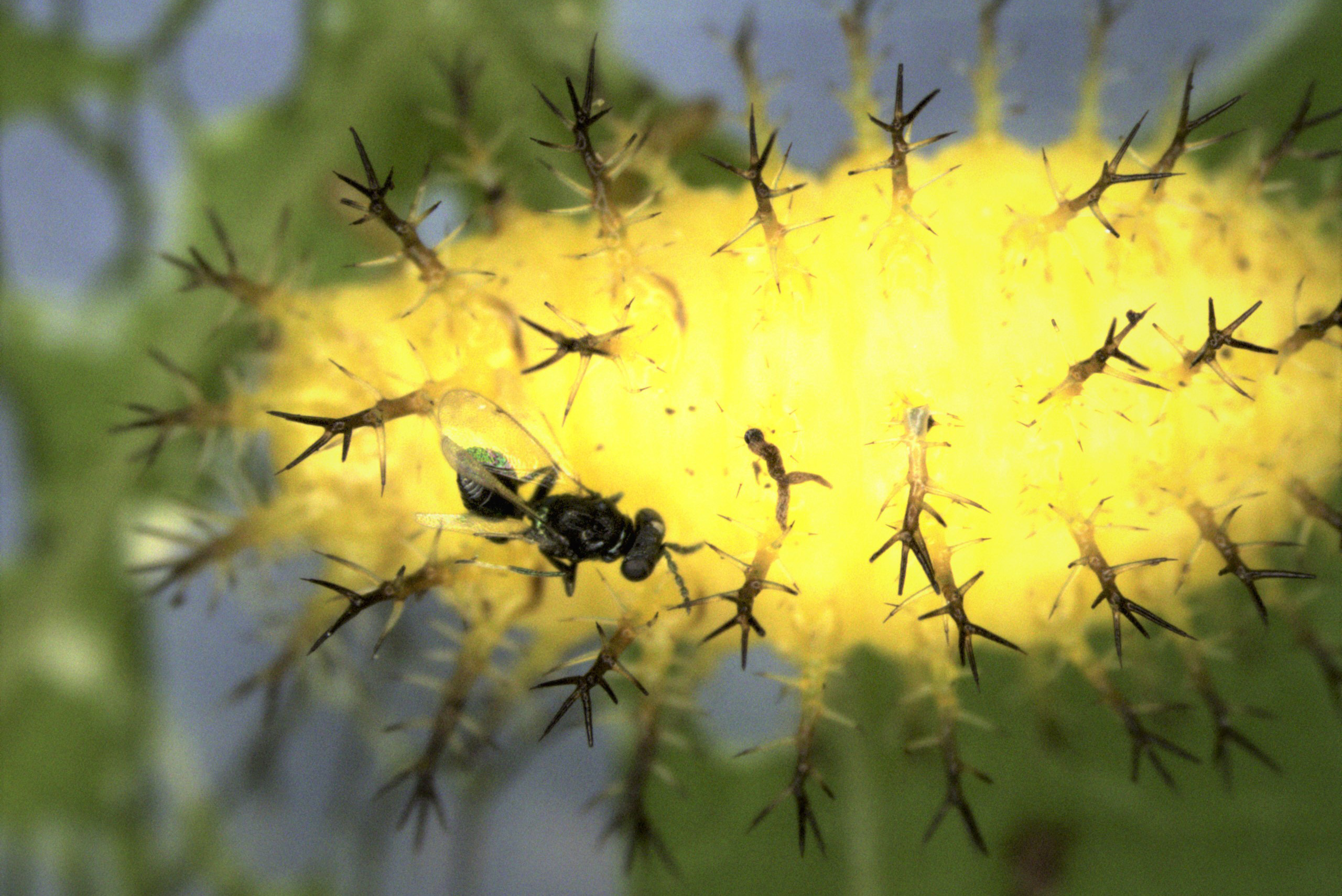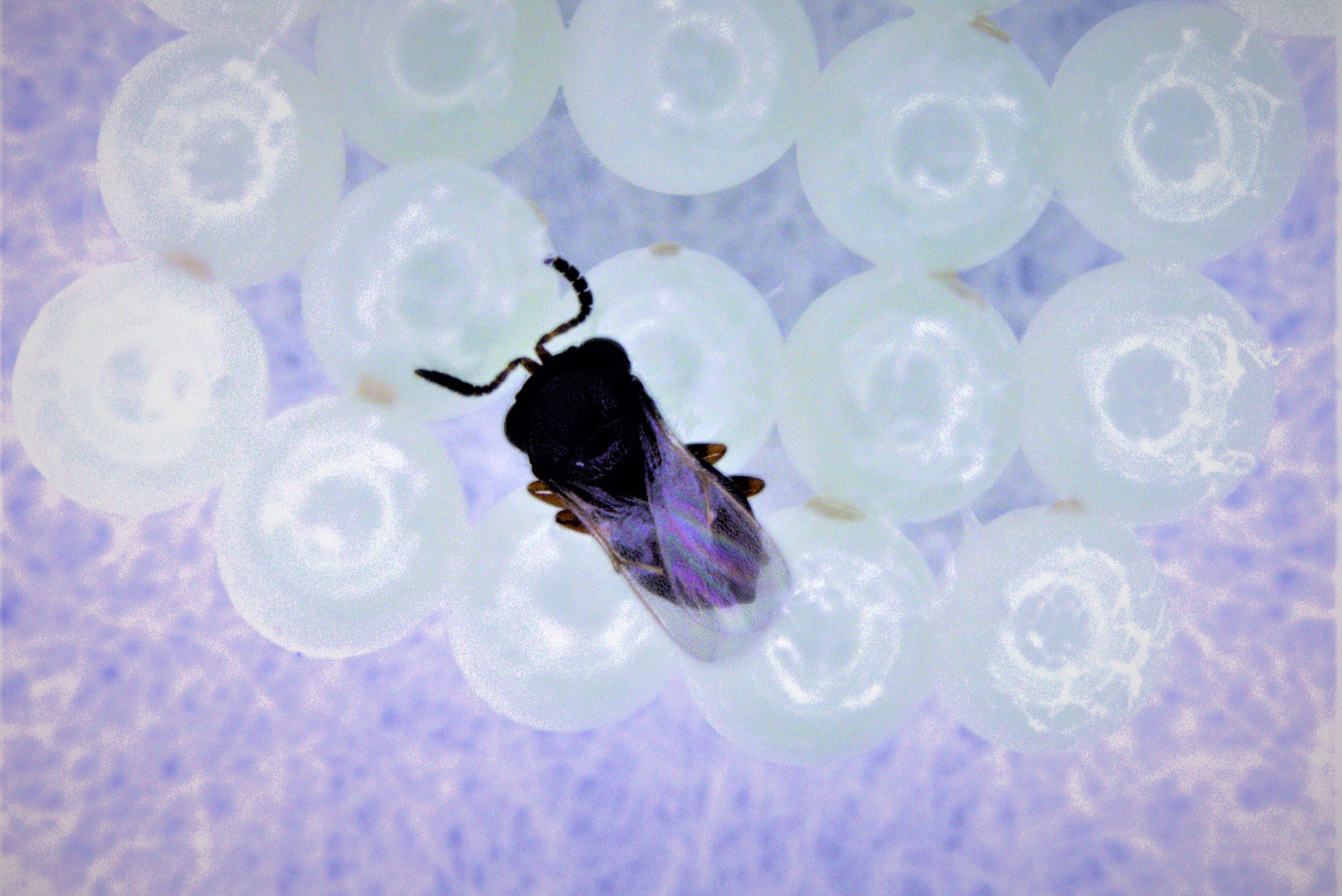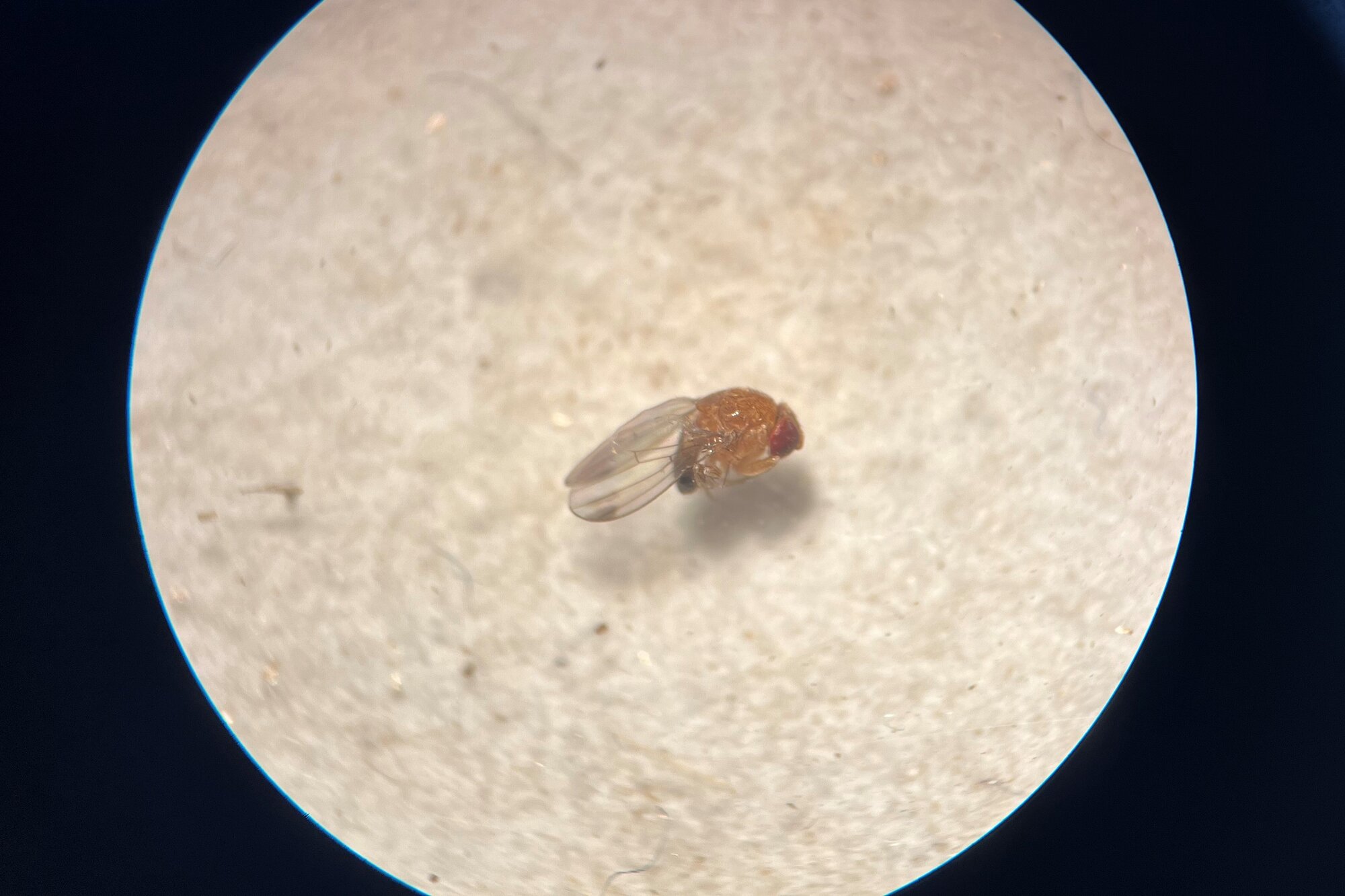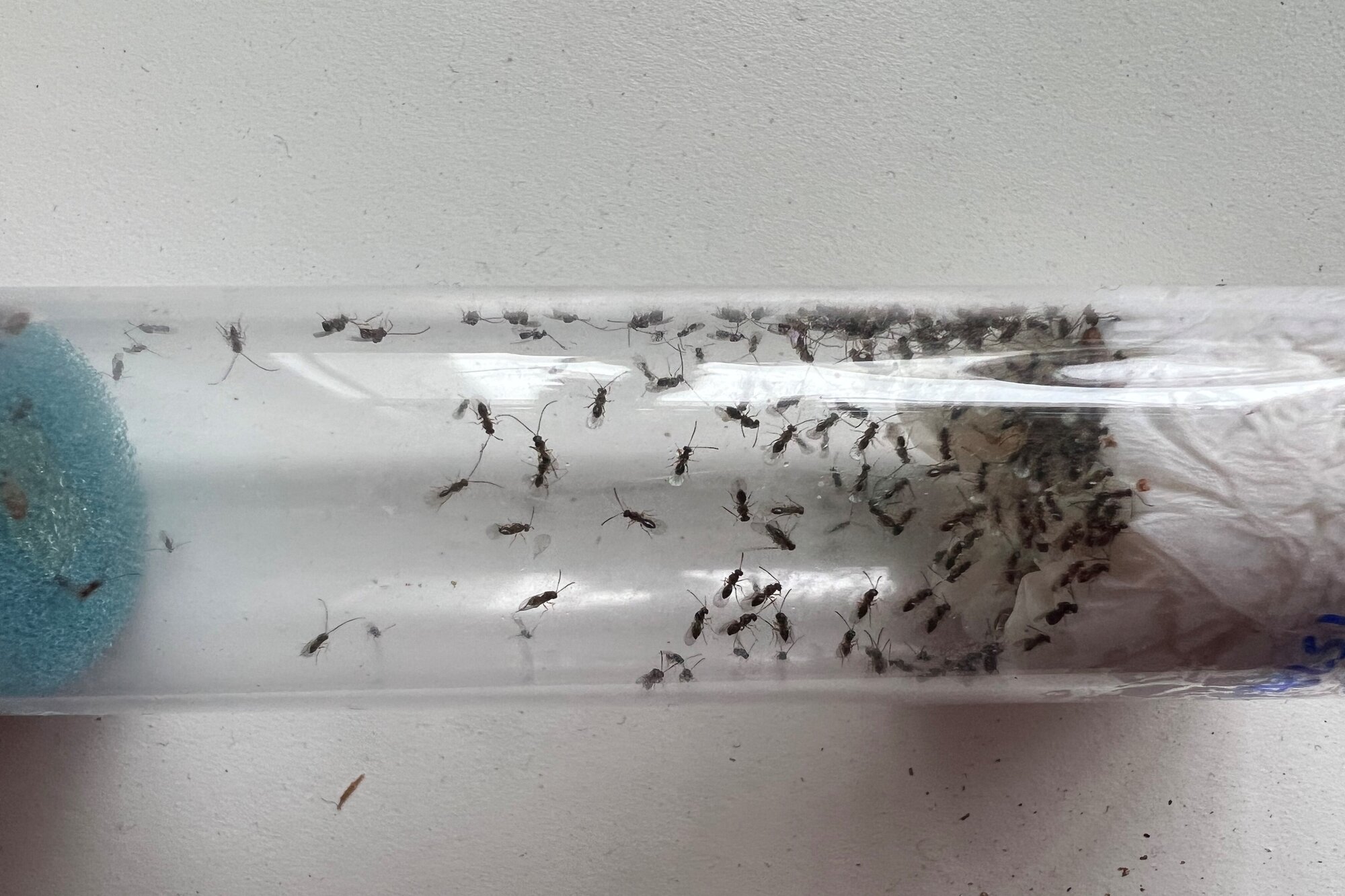Biocontrols for Invasive Insects
Mexican Bean Beetle

.jpg)
Mexican Bean Beetle is a major insect pest of soybeans as well as a pest of snap and lima beans. The NJDA conducts a successful program, partially funded by the NJ Soybean Board involving the rearing of a beneficial parasitoid (Pediobius foveolatus) from India that cannot survive NJ winters. This program annually protects over 100,000 acres of NJ soybeans and has reduced the amount of pesticides required to control MBB by over 21 tons, saving growers more than $450,000 annually. The parasitoid is maintained in the lab and released each summer. The program is also responsible for reducing MBB damage and pesticide treatment of snap beans and lima beans.
Brown Marmorated Stink Bug

.jpg)
Brown marmorated stink bug, Halyomorpha halys, is native to Asia and a general agricultural pest that attacks fruit trees, vegetable crops and many other plants. It was introduced to PA in the late 90’s. PABIL maintains a non-diapausing colony of this pest insect in preparation for the release of Trissolcus japonicus, a wasp biocontrol that develops in the stink bug eggs. In the meantime, BMSB eggs and adults are sold to different federal and university researchers working on projects to help control BMSB in the United States.
Spotted Wing Drosophila


Spotted Wing Drosophila (SWD), Drosophila suzukii, is an invasive fruit fly indigenous to Asia. They are currently found in most of the primary fruit growing regions of the United States. Ganaspis brasiliensis is a parasitoid wasp native to South Korea recently approved for release as a biological control agent. PABIL lab staff received these wasps in April 2022 from the USDA BIIRU in Newark, DE to begin the colony. In cooperation with Rutgers University, releases on blueberry farms began in the summer of 2022.
 Official Site of The State of New Jersey
Official Site of The State of New Jersey
